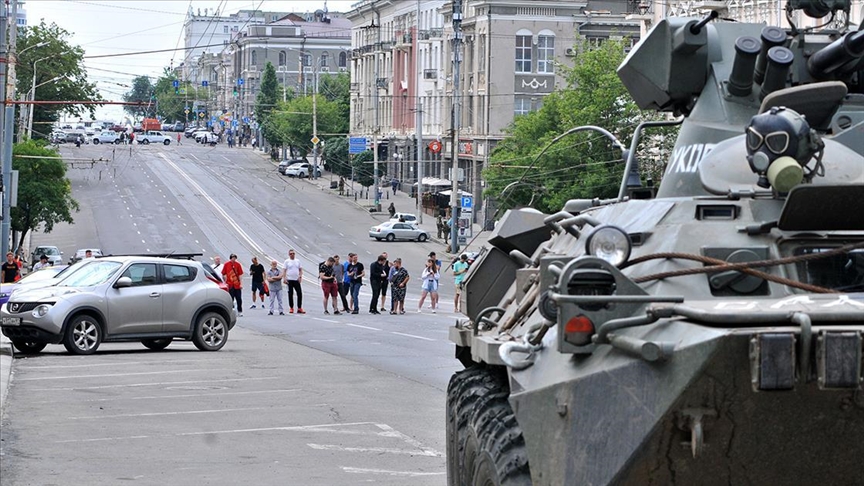Turkey fears surface in France
"The Turkey debate is not over," said Le Monde on discussions at the French National Assembly that took place on Thursday afternoon. According to Le Figaro, the parliamentary session did not resolve differences over the issue and debate on the Turkey question is expected to plague French politics in the future.
Thursday’s session left President Jacques Chirac, who supports beginning of accession talks with Turkey at a Dec. 17 summit, increasingly isolated, with both opponents and his own lawmakers criticizing his pro-Turkey stance.
He approved the debate, without a vote, under pressure from both the opposition and a large number of his Union for a Popular Movement (UMP) lawmakers. "Chirac on defensive over Turkey," said Liberation in its headline.
Chirac’s reluctant approval of the emergency session sparked criticism that he was in danger of losing authority within his own party, which had voted earlier this year to oppose Ankara’s entry.
Prime Minister Jean-Pierre Raffarin defended Chirac’s stance in support of opening accession talks with Turkey in the National Assembly.
Conservative lawmakers were angry at the premier for not allowing a vote on Turkey’s EU entry, something that could have embarrassed Chirac ahead of the Dec. 17 summit.
In an attempt to allay conservatives’ fears, Raffarin said Turkey was not likely to become a member "today, tomorrow or in the next few years."
"Today, Turkey is far from Europe in political, economic and social terms," he said. "Despite the economic progress, efforts must continue."
Socialist deputy Jean-Marc Ayrault accused the governing UMP party of conducting "politics of fear" over the issue, while Socialist Laurent Fabius, a potential presidential candidate, declined an offer to speak during the debate, Reuters said.
"The debate will only disappoint everyone," because there was no vote, he told reporters outside the debating chamber.
"The government is spreading a smoke screen over the position it will defend on Dec. 17 and is refusing parliament the right to express itself in a vote," said Ayrault.
Closing the door to Turkey would mean France "breaking its word," he said. But the European Union should retain the option of offering Turkey a special relationship rather than full-blown membership, until entry talks end.
The government is worried French voters’ concerns about Turkey’s admission could weigh heavily in a referendum on the European Constitution next year. A "no" vote could scupper the treaty, which all EU member states must ratify.
Chirac has promised the French a separate referendum on Turkey’s accession bid "when the time comes" — probably in more than a decade — and has said France has the right to withdraw, use its veto or reject entry talks at any time.
A recent poll showed only a quarter of voters favored Turkish entry in the near future. Many are wary of the mainly Muslim country, which they see as a threat to their jobs and to French influence in the EU.
Widespread hostility to Turkey within the UMP is also a threat to Chirac’s future plans. Nicolas Sarkozy, a potential rival in the 2007 presidential elections, disputes Chirac’s pro-Turkey stance.
And Sarkozy is expected to be installed as UMP leader by party activists next month.
In an open letter to Chirac on Thursday, a dozen members of his UMP party called Turkey’s possible entry to the bloc a "dangerous project, even suicidal for a federal Europe, as well as for a Europe of nations."
Prime Minister Recep Tayyip Erdogan is due in Paris next week for a visit to the Paris-based Organization for Economic Cooperation and Development (OECD), but the widespread opposition to Turkey’s EU bid may spoil his talks.
Foreign Minister Michel Barnier, not a man to get carried away, voiced clear discontent with Ankara’s ambassador to Paris for saying that what was happening in France was crazy.
"I don’t wish to see this debate caricaturized," Barnier said on Thursday as the debate drew to a close in parliament.
"And let it be said frankly, in the interest of transparency with Turkey’s ambassador, that he is wrong to consider that there is a sort of delirium here, as I read less than 24 hours ago."
He was referring to remarks by Turkish Ambassador Uluc Ozulker at a press conference this week, where he said: "I think there’s a case of delirium in Paris at the moment. I thought the French people were Cartesian, but I am starting to wonder."

